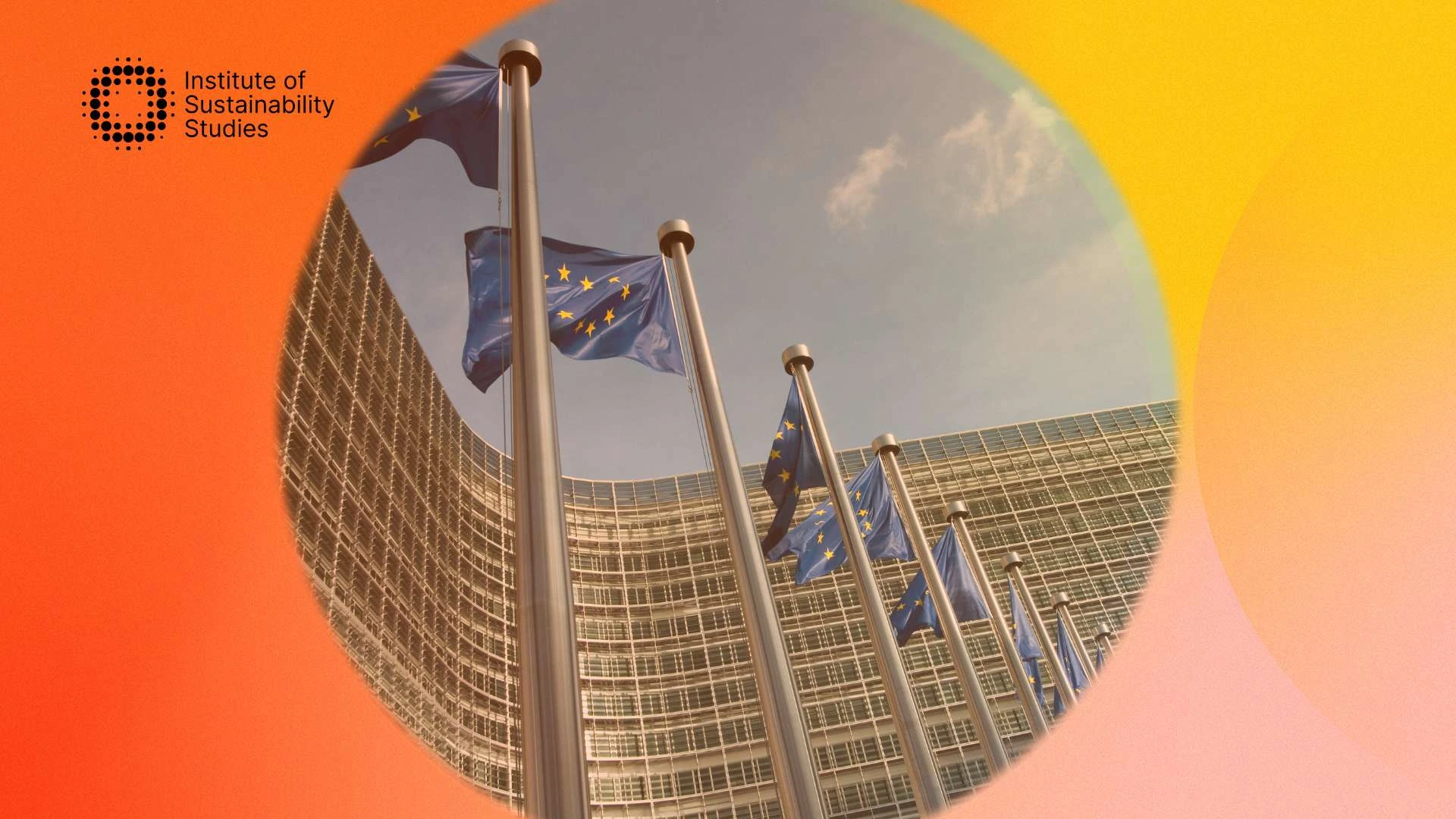A number of SMEs remain reluctant to transition to sustainable business models even in the midst of a climate emergency. This is because they view the investment of doing so as rather costly and not fitting within traditional business models.
They also speculate that it is contradictory to business performance. Countries globally are being faced with pressure to take climate action, and ambitious targets have been set to help us achieve a more sustainable economy. To fulfil these targets, we need all businesses to invest in greening their operations.
Small and medium-sized enterprises (SMEs) are no exception but rather will be an essential piece of the puzzle when it comes to the green transition. SMEs are at the heart of our economy, and there will be no net zero without them. Continue reading to explore how the climate emergency can be an opportunity for SMEs.
Pressure is building across society for climate action
As mentioned previously, there is a huge amount of pressure for countries across the globe to take climate action and curb emissions. We are currently in a race to curb our emissions by 2030 and already, we are far behind where we should be. Large corporations and small and medium-sized enterprises alike have a big role to play in relation to climate action.
If SMEs do not act and green their operations, it can impact broader policy objectives towards sustainability. Additionally, it can negatively affect an SME’s survival, the long-term competitiveness of national and regional economies, and the resilience of supply chains and productive networks. Embracing sustainability will help small businesses increase their productivity and reduce their costs. They will be able to accelerate energy efficiency, which will only enhance their resilience.
Going green also represents a significant market and innovation opportunity due to the latest trends in consumer demand. There is a growing number of businesses implementing circular economy practices, environmental solutions, and green business models now. There has never been more pressure across society for climate action, and while it may not seem possible for smaller businesses, it certainly is. A number of SMEs are taking steps to become more environmentally conscious.
However, like anything, they are still faced with some barriers. Some of these challenges include regulatory hurdles, lack of awareness of opportunities and information, lack of resources and innovation assets, and limited access to knowledge networks. Coupled with that, the uncertainty surrounding the business case for sustainability continues to impact their decision-making. Governments across the globe also recognise the importance of entrepreneurs and SMEs when it comes to achieving net zero.
While COVID-19 presented more challenges for SMEs, it also showed how agile they are and resulted in vital contributions to help SMEs and entrepreneurs address societal issues. It is vital that SMEs take action and step up to climate action. Doing so will not only help to mitigate the negative effects of the climate crisis but also help them create an adaptation plan to boost their resilience in the future climate-neutral world we are trying to build.
SMEs are a critical piece of the climate action puzzle
Unfortunately, the public sector will not be able to achieve the goals outlined in the Paris Agreement alone. In order to limit the Earth’s warming, we need the commitment and involvement of the private sector too to curb emissions and reach net zero.
Climate action is the only financially sustainable method to ensure your business operates in the future. It is about more than ESG; it is about monitoring risks presented by climate change. SMEs have already proven themselves as key drivers of growth and innovation, and they account for roughly 97 percent of all enterprises globally.
While there are certain challenges in their way, there are too lots of opportunities to help SMEs green their operations to take climate action. They are already leading the way when it comes to the climate emergency. Moreover, SMEs impact the livelihoods of over two billion people.
They are not only a critical piece of the climate action puzzle but also a key driver in mitigating the climate emergency. Curbing emissions and decarbonising at the SME level has huge advantages. For one thing, it helps to build a more resilient supply chain overall. This is particularly important when you consider the impacts of the climate crisis which are so severe and uncertain.
The impact of one small business alone could seem minimal but when compared to the worldwide climate challenge we are facing, it could make a real difference. SMEs make up a huge amount of businesses globally and they are a force to be reckoned with. They do not operate in a vacuum but supply bigger businesses with resources and products.
This takes them into the realm of Scope 3 emissions which are those associated with the supply chain. These emissions are 11.4 times higher than operational emissions, according to the Environmental Protection Agency (EPA). With that in mind, they are also the most challenging to reduce and curb.
Large corporations are under a lot of pressure to improve their supply chains and reduce emissions and there is also pressure on SMEs to decarbonise as they grow. In order to rapidly decarbonise and meet our goals, we need small and medium enterprises to work collectively. They represent a significant amount of economic activity and job creation and are already taking the steps to respond to climate change and become more resilient.
Amplifying the actions SMEs take can create broader ripple effects
Today’s consumers are increasingly aware of the environmental challenges we are facing and as a result, they are looking to businesses to take action. This demand is encouraging businesses to adopt net zero practices as well as having a more conscious and positive attitude towards protect the planet.
However, introducing sustainable practices and innovations can remain quite overwhelming for small and medium enterprises. This is mainly because they are not sure where to begin. Luckily, there are lots of low-cost solutions to help SMEs get started with climate action.
Simple oranisational changes can help small businesses become more conscious of their impact on the planet. These kinds of measurements and assessments can help them to pin-point areas for improvement as well as opportunities. Moreover, it can help to de-risk the business and adapt to the climate emergency.
While SMEs have been faced with lots of different challenges since the COVID-19 pandemic in 2022, they are still doing a lot to advance the net zero agenda. The way they do it varies depending on the industry they are working within and the particularities of their business model.
To give an example, research has found approximately one in three businesses are making the switch to more renewable energy resources. Similarly, studies have uncovered that two in five businesses are implementing changes in their distribution and production processes to become more resource efficient.
We are currently in a digital era which is seeing many small businesses digitalise their processes to improve their productivity and efficiency. This is ultimately enhancing their climate action strategies. An ERC report has made a strong connection between digital technologies and environmental practices in SMEs.
The results reveal that there is a synergy between net zero practices like undertaking environmental audits, switching to renewable energy solutions, and implementing low carbon services and products and the use of customer relationship management (CRM) systems. This presents a win-win scenario to organisations because they are fulfilling customers’ needs while tackling climate issues simulatenously.
One important thing to keep in mind here, however is that small businesses are limited in the resources they have available to them. Therefore, numerous different factors can limit SMEs from reaching their net zero goals. Some of these include a lack of education around low carbon technology. Additionally, lack of funds to meet the standards and regulation.
Moreover, an uncertain demand for low carbon products and not having the relevant skills. While this is the case, there is also lots of evidence to show business owners and managers are very engaged and positive about tackling climate issues despite the barriers. Therefore, we need to help small businesses to navigate these hurdles so they can have a true impact and thrive.
Summary
The climate emergency could be a huge opportunity for small and medium-sized businesses to protect the planet while increasing their profits and building resilience. While they have plenty of barriers in their way, they have proven to be a force to be reckoned with and have already begun to take climate action.
Some business owners remain unsure as to how to tackle climate change. However, they still have a positive attitude and want to do their part. This is why it is vital SMEs learn more about the climate crisis so they can be a key player in the mitigation of climate change.
By incorporating solutions like Negative Emissions Technologies (NETs) and leveraging responsible business practices, SMEs can accelerate their transition to net-zero and make a meaningful impact. However, acquiring the skills and knowledge is also pivotal. Our range of courses can help you to create a climate action plan for your business so you can get a competitive edge while de-risking and adapting to the negative effects of climate change.
Dedicated to harnessing the power of storytelling to raise awareness, demystify, and drive behavioural change, Bronagh works as the Communications & Content Manager at the Institute of Sustainability Studies. Alongside her work with ISS, Bronagh contributes articles to several news media publications on sustainability and mental health.
- Bronagh Loughlinhttps://instituteofsustainabilitystudies.com/insights/author/bronagh/
- Bronagh Loughlinhttps://instituteofsustainabilitystudies.com/insights/author/bronagh/
- Bronagh Loughlinhttps://instituteofsustainabilitystudies.com/insights/author/bronagh/
- Bronagh Loughlinhttps://instituteofsustainabilitystudies.com/insights/author/bronagh/










